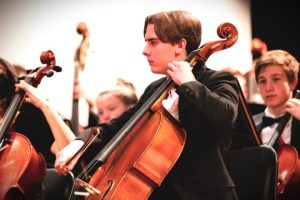
“For a six-day period you shall eat matzos and on the seventh day shall be an assembly to the L-rd, your G-d; you shall not perform any creative work.” (Deuteronomy/Devarim 16:8) This seventh day is the day that G-d split the Sea of Reeds (often mislabeled the Red Sea) for the Jews, and drowned the Egyptians who chased after them. After the Jews were saved, the Torah records the song they sang as thanks to and praise of G-d. This song is prominent in Jewish life; it is repeated in its entirety in our daily morning prayers.
The Midrash (Shemos Rabbah 23:4) states that prior to the splitting of the sea no one had sung to G-d as the Jews did in response to this miraculous salvation. Many commentators are troubled by this Midrash since we do have records of earlier songs, including Psalm 92, the psalm honoring the Shabbos day, which is attributed to Adam. What was so unique about the Song at the Sea that our Sages’ consider it the first? And why is there a continued emphasis on that song today?
Rabbi Gedaliah Schorr (1) explains that this song excels because it is the first time that the depth and magnificence of the message draws on the full essence of the beauty of music. A song is comprised of many notes – some high, some low, some euphoric, some discordant. Each note on its own is nothing special. The beauty of song is bringing together all the individual notes and chords to create something magnificent. A song without the low notes would lack richness and beauty. Similarly, our own lives are replete with many experiences – high points and low points – that comprise the symphony of life. With our finite, human perspective we do not appreciate the reason for the low points and would prefer the song of life to be without them. All of the songs written in praise of G-d prior to this one were expressions of gratitude for the evident blessings and high points in life.
With the Egyptians drowned in the sea and real freedom finally at hand, the Jews now appreciated there was a reason for the decades of suffering they had endured. The low points helped testify to the glory of G-d in the song of life; the song would be incomplete without them. For the first time, a song praising G-d included praising Him for the events one may perceive to be bad. Thus, we continue to emphasize that song today. It constantly reminds us that whether we understand it or not, there is a purpose behind life’s challenges and in due time we will understand and appreciate the beauty of every aspect of our lives.
Have a Good Shabbos and Good Yom Tov!
(1) Rosh Yeshiva/Dean of Mesivta Torah Vodaath in Brooklyn, New York; 1910 – 1979; in Or Gedalyahu, the collection of his discourses
Text Copyright © 2005 by Rabbi Shlomo Jarcaig and Torah.org.
Kol HaKollel is a publication of The Milwaukee Kollel Center for Jewish Studies · 5007 West Keefe Avenue · Milwaukee, Wisconsin · 414-447-7999


